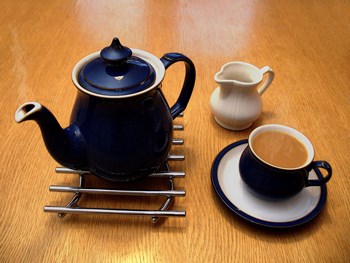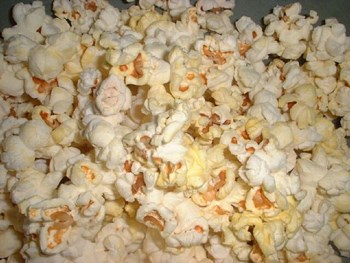I never fully appreciated the phrase "We are a product of our environment" until coming to Lagos. Small, seemingly inconsequential aspects of a society have a ripple effect that affects culture as a whole.

Anyone for tea? Sugar? Milk? (Image: Public Domain)
As a South African coming to Nigeria, my first client was a premium milk brand within the country. For me milk has always been seen as synonymous with breakfast. When you talk about breakfast, you have cereal and milk. This is however not the case within Nigeria where the typical breakfast consists of a large rice meal, In fact rice seems into infiltrate a majority of the dishes eaten by Nigerians. The predominant use of milk within Nigeria is for tea and coffee, even then it is not the standard fresh or preserved milk that I had become accustomed to. It is canned, dehydrated milk, just add water.
The leaders in generator ownership
Why is this though? Maybe the answer lies in the fact that while Nigeria is one of the top 10 oil producers in the world the average citizen has yet to experience a day with uninterrupted electricity. Nigeria leads the world in personal generator ownership where generators produce more than double the electricity than the local power grid.
If you have no electricity, in a climate the shifts from uncomfortably hot to Dante's third circle of hell, relying on refrigeration is not an option to the general public. This leads to milk and other such items being removed from the average diet. It's also interesting to note that fresh milk is then targeted at the premium consumer segment that can afford 24/7 generator capabilities and the price is adjusted accordingly.
Popcorn... that's sweet
The diet of your average Nigerian speaks to a non-reliance in refrigeration. Rice is the main starch in most meals consumed, chickens are sold live, beans and corn are staples within most meals and there is an abundance of dehydrated food.

How sweet... popcorn. (Image: Public Domain)
This was not the only example that I found surrounding cultural norms in food. I was lucky enough to catch a film with my colleagues at Ikeja Mall in Lagos, and if anyone travels to Nigeria, I strongly suggest you do this. The general atmosphere of the crowd as they get into the movie is incredible and I can't do it justice by trying to put it into words. What I found unusual though was the popcorn. Instead of salting the popcorn they add sugar. The reason for this is more than just a sweet tooth. In the '80s hypertension and high blood pressure was the norm among Nigerians. This then was the start of a cultural shift to better health with the removal of salt from the diet.
By no means am I suggesting that these are the sole reasons for cultural and traditional norms within a society because this is on a whole a simplistic view on culture, but this does highlight significant barriers to entry that has roots in the local environment.
It truly is amazing to see how things can subtly change and influence a lifestyle and I'm sure I'll see many more examples of it before my journey is through but this ends my first report from the Wild West of Africa. Let me know what you think and I'll be sure to follow up soon.



























